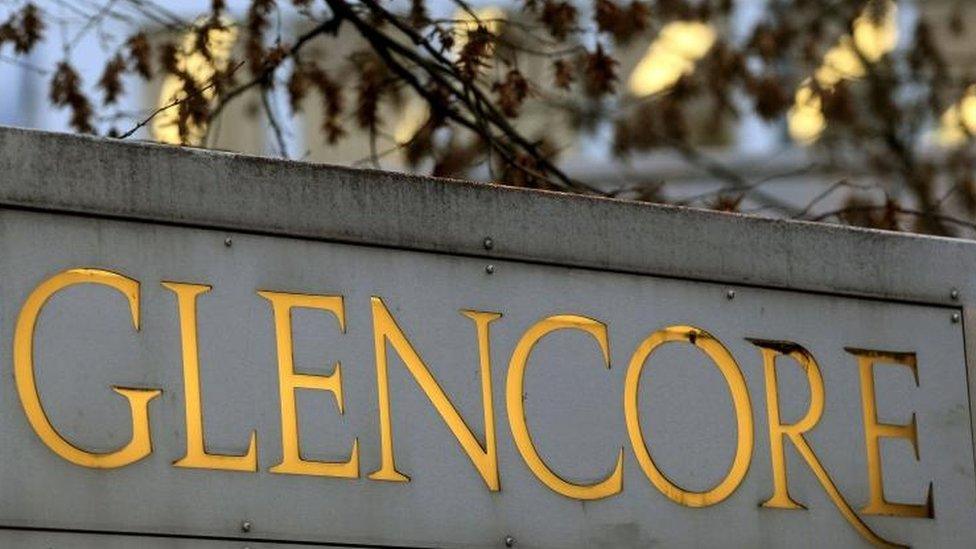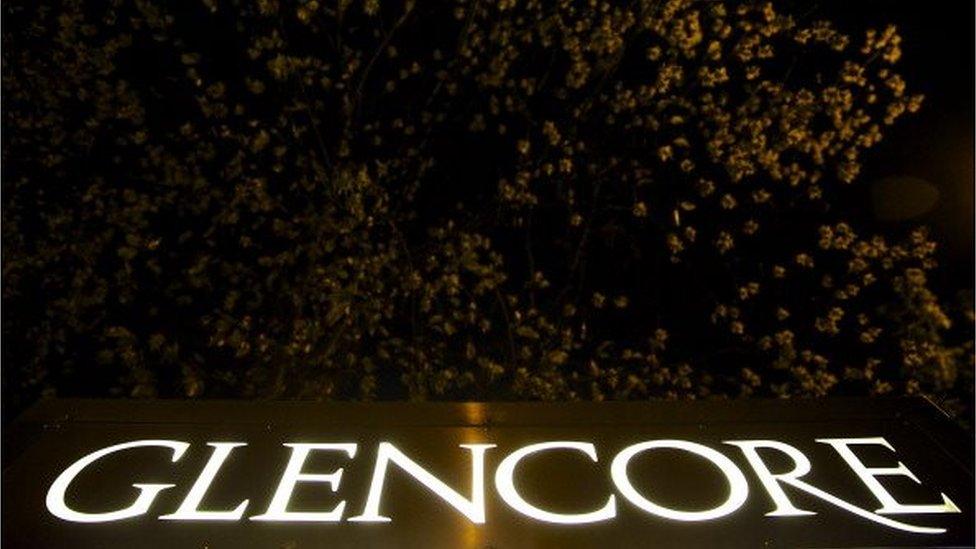Glencore says it is 'operationally and financially robust'
- Published

Mining firm Glencore has said it is "operationally and financially robust" after questions were raised about its financial future.
On Monday its shares dived 30% after a note from analysts at Investec said its equity value could be "eliminated".
Investec's Laura Lambie told the BBC Glencore faced "severe problems" if it did not cut its debt and commodity prices do not recover.
But a Glencore spokesperson said the firm had no solvency issues.
"Glencore has taken proactive steps to position our company to withstand current commodity market conditions, " the spokesperson added.
"Our business remains operationally and financially robust.
"We have positive cash flow, good liquidity and absolutely no solvency issues."
Debt concerns
Glencore has been hit by a slowdown in the wider commodities markets, with copper, aluminium and nickel all down more than 25% compared with a year ago.
In recent weeks chief executive Ivan Glasenberg has tried to reduce the company's debt by selling shares and assets, as well as scrapping a series of dividends.
Glencore hopes to generate up to $12bn (£7.9bn) from the sale of its grains business to reduce its debt burden.
But it has done little to allay fears over Glencore's £20bn debt pile which have seen its shares dive in the past month and the cost of insuring that debt soar.
Speaking to the BBC, Investec's Laura Lambie said: "Miners grew hugely to meet the demand from China and they borrowed heavily to find it and the cost of servicing that debt and the schedule of repayments are really putting companies such as Glencore under the spotlight.
"The risk is if commodities don't recover then companies like Glencore will be in trouble trying to repay its debt."
Investec has also questioned how much Glencore could raise from selling its agriculture division, as "valuing such a volatile business is likely to be tough".
'Lehman-moment'
Glencore's stock has fallen by more than 85% since the company went public in 2011 at a price of £5.30 a share.
On Tuesday its shares rallied after the firm's statement, closing up nearly 17% at 80.24p, but it is still a long way off its flotation price.
Nigel Wilson, the chief executive for Legal and General, which is a shareholder in Glencore, said the mining company was facing a "quasi-Lehman moment", referring to the collapse of the US investment bank during the 2008 financial crisis.
Mr Wilson called on Glencore's management to clarify information about the company's viability to stem further falls in its stock.
"There's a lot of noise and there's not enough signalling. That lack of information causes a huge amount of uncertainty at Glencore which is having a massive contagion effect across the world," Mr Wilson said.
However, analysts at Citigroup said the sell-off in Glencore shares had been overdone.
Citigroup said that there was still value in the business, and that Glencore should even consider going private via a management buyout if the market rout continued.
"In the event the equity market continues to express its unwillingness to value the business fairly, the company management should take the company private, whereby restructuring measures can be taken easily and quickly," it said.
- Published28 September 2015

- Published11 September 2015

- Published19 August 2015

- Published7 September 2015
